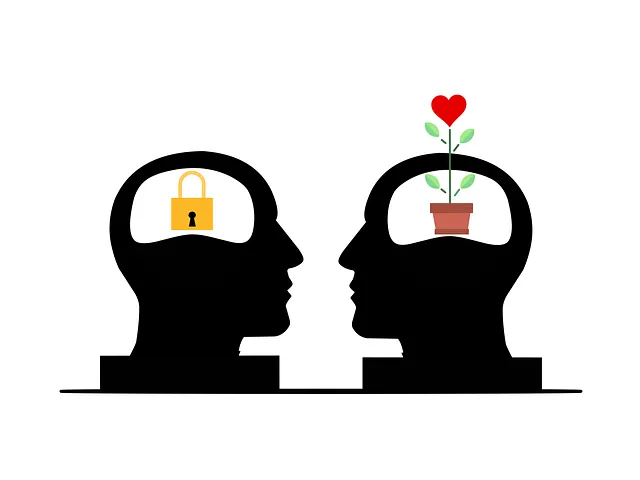The Longmont Kaiser Permanente Mental Health Access Center emphasizes mood regulation as a key component of emotional well-being, offering personalized strategies through therapy, podcasts, and workshops. They provide comprehensive services, combining traditional therapy with innovative programs focused on stress reduction, emotional healing, and resilience building. Cognitive reframing techniques empower individuals to retrain their thought patterns for better mood management, supported by lifestyle interventions like exercise, mindfulness, and balanced diets. The center also prioritizes cultural competency training for healthcare providers, ensuring a holistic approach sensitive to diverse backgrounds.
Mood regulation is a vital skill, and understanding how to manage our emotions can significantly impact overall well-being. This article explores various strategies to achieve emotional balance, offering a comprehensive guide for those seeking to enhance their mental resilience. We delve into the importance of cognitive strategies, such as retraining your mind, alongside lifestyle interventions that promote stability beyond therapy sessions. Additionally, we highlight the Longmont Kaiser Permanente Mental Health Access Center as a valuable resource for those in need of support.
- Understanding Mood Regulation: Unraveling Emotional Balance
- Longmont Kaiser Permanente Mental Health Access Center: A Hub for Support
- Cognitive Strategies: Retraining Your Mind for Better Mood Management
- Lifestyle Interventions: Nurturing Stability Beyond Therapy Sessions
Understanding Mood Regulation: Unraveling Emotional Balance

Understanding mood regulation is a crucial aspect of maintaining emotional balance, and the Longmont Kaiser Permanente Mental Health Access Center emphasizes this as a key component of overall well-being. Moods are complex responses to internal and external stimuli, influenced by our thoughts, feelings, and behaviors. Effective mood regulation strategies involve recognizing and managing these triggers to foster mental health awareness and prevent burnout, especially among healthcare providers who face high-stress environments regularly.
By understanding the interplay between emotions, cognition, and behavior, individuals can develop personalized techniques tailored to their unique needs. The Mental Wellness Podcast Series Production offers valuable insights into various mood regulation strategies, such as mindfulness practices, cognitive reframing, and stress management techniques, which have been shown to enhance mental wellness and prevent burnout in healthcare settings.
Longmont Kaiser Permanente Mental Health Access Center: A Hub for Support

The Longmont Kaiser Permanente Mental Health Access Center stands as a beacon of hope and support for those navigating mental health challenges. This hub offers a comprehensive array of services designed to address various aspects of mental wellness, from diagnosis and treatment to prevention and recovery. Here, individuals can access not only traditional therapy but also innovative programs focused on stress reduction methods, emotional healing processes, and resilience building.
The center’s welcoming atmosphere fosters open conversations, encouraging clients to explore effective coping strategies tailored to their unique needs. Through a multidisciplinary approach, the Longmont Kaiser Permanente Mental Health Access Center provides a holistic support system, helping individuals not only manage but also thrive in the face of life’s challenges. This dedicated space serves as a testament to the power of accessible mental health care, empowering folks to embrace emotional healing and cultivate resilience.
Cognitive Strategies: Retraining Your Mind for Better Mood Management

Cognitive strategies are a powerful tool for retraining your mind and enhancing mood regulation. These techniques, often taught at centers like the Longmont Kaiser Permanente mental health access center, focus on challenging negative thought patterns and replacing them with more positive and realistic ones. By understanding the connection between thoughts, feelings, and behaviors, individuals can gain control over their emotional responses. The Mind Over Matter principles emphasize cognitive reframing, where people learn to view situations from different perspectives, reducing the impact of stress and improving overall well-being.
Stress management workshops organized by various organizations often incorporate these cognitive strategies. They teach participants how to identify triggers and develop effective coping mechanisms. For mental health professionals, integrating risk management planning into their practice involves not only addressing symptoms but also teaching clients these cognitive skills. This holistic approach ensures better mood management, fostering a more balanced and resilient mindset.
Lifestyle Interventions: Nurturing Stability Beyond Therapy Sessions

In addition to therapy sessions offered at Longmont Kaiser Permanente mental health access center, lifestyle interventions play a crucial role in long-term mood regulation. Activities such as regular exercise, mindfulness practices, and maintaining a balanced diet can significantly enhance mental well-being. Engaging in these activities helps individuals cultivate resilience and create stability beyond the confines of clinical settings. For instance, exercise releases endorphins that naturally boost mood while reducing stress hormones. Similarly, mindfulness techniques like meditation foster compassion cultivation practices, enabling individuals to develop emotional agility and better cope with life’s challenges.
Integrating these lifestyle changes requires support from both individuals and their healthcare providers. The Longmont Kaiser Permanente mental health access center can facilitate this through comprehensive programs that include education on mental health awareness and cultural competency training for healthcare providers. Such initiatives ensure a holistic approach, where patients receive care that is sensitive to their cultural backgrounds and needs, ultimately fostering trust and encouraging adherence to self-care routines.
Mood regulation is a multifaceted journey, and by combining insights from understanding emotional balance with practical strategies like cognitive retraining and lifestyle interventions, individuals can gain significant control over their well-being. The Longmont Kaiser Permanente Mental Health Access Center serves as a vital hub, offering comprehensive support to help navigate this process. Ultimately, through proactive management and a nurturing approach, one can foster stability and enhance overall emotional resilience.





